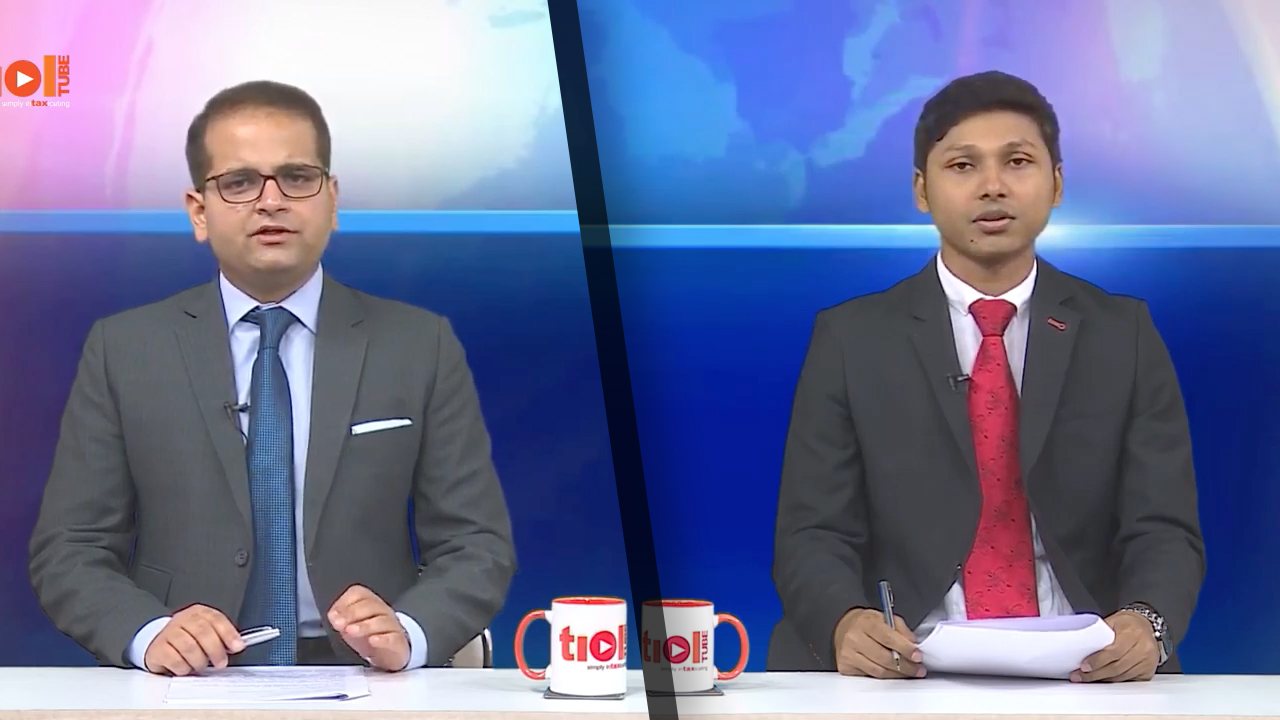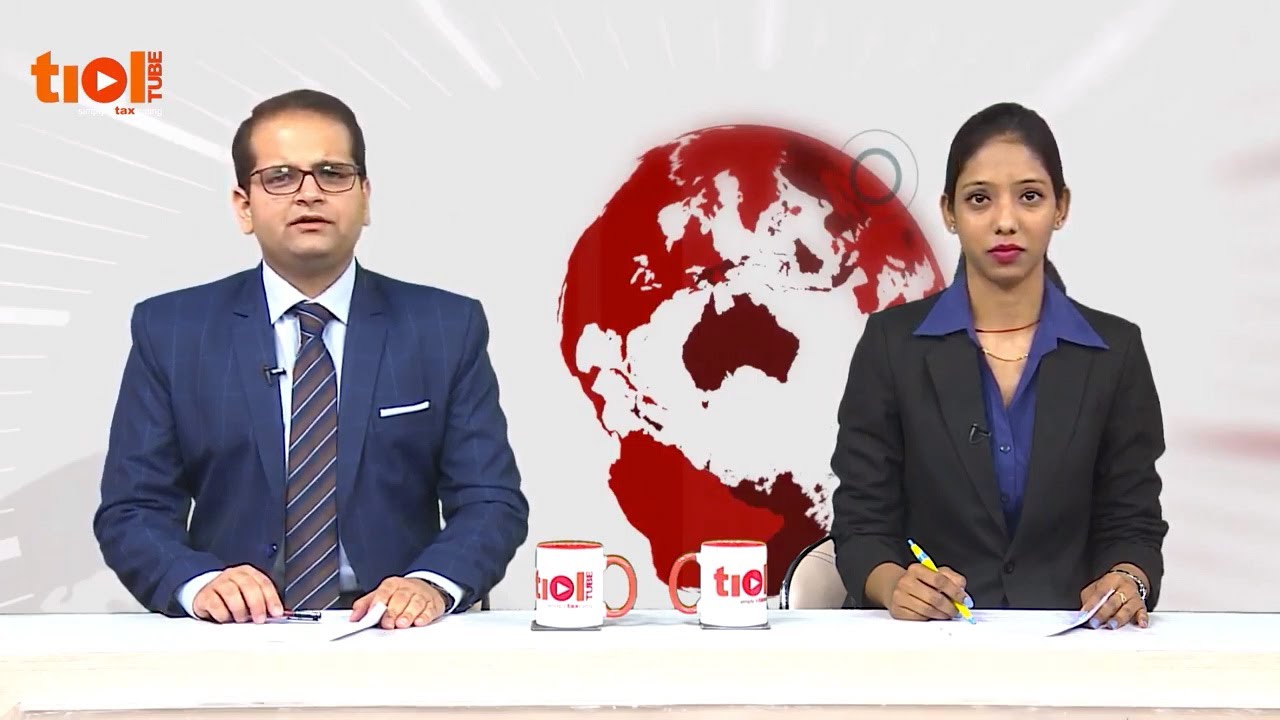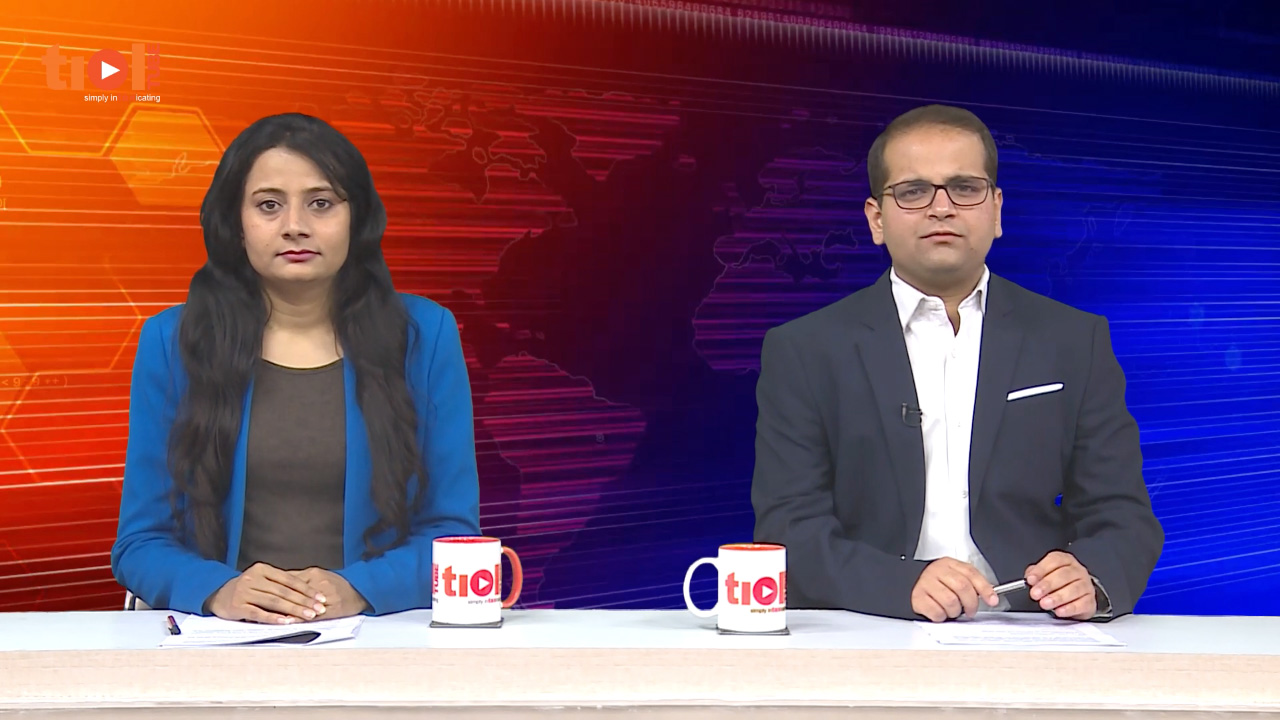|
SERVICE TAX
2019-TIOL-1088-CESTAT-HYD CCE & C Vs Pv Rama Rao And Company
ST - The assessee is a service provider to M/s ITC Limited who are the manufacturers of paper - It appeared to department that the assessee was providing BAS and were instead paying service tax under Manpower Supply service - The assessee classified them as manpower supply services and paid the service tax accordingly - The first type of agreement states that the scope of work under this contract includes handling of the "loose broke" generated due to physical damages and also due to start up wastage at the winder of PM-V and for this purpose the service provider shall depute its manpower approved by the company to undertake the jobs - In both types of contract, the type of job to be carried out is specified, in the first case the rate of payment is in terms of Rupees per tonne whereas in the latter case, the payment is of Rupees per man days labour - Even in the first contract, in addition to payment per tonne, the service recipient also offers to reimburse annual leave to the workers at rates specified therein - Similar provision also exists in the second type of contract - The holistic reading of two contracts clearly indicates that the nature of contract is provision of manpower including manpower to supervise the labour and to ensure that they undertake the work of the requisite quality - It can indeed fall under the category of manpower supply services - Of the sub clauses under the definition of Business Auxiliary Service, the Department wants to classify it under special clause (vii) which is a service incidental or auxiliary to any of the activities specified in sub clauses (i) to (vi) - However, neither in the SCN nor in the O-I-O or in the grounds of appeal, the department clarified as to which of the sub clauses (i) to (vi) is relevant - Unless this is specified, it cannot be examined whether the services provided by assessee is incidental or auxiliary to that category - Therefore, services rendered by assessee can be classified as BAS - Therefore, no infirmity found in the Order of Commissioner (A) and find no reason to interfere with it: CESTAT
- Appeal rejected: HYDERABAD CESTAT
2019-TIOL-1087-CESTAT-HYD
Shriram Life Insurance Company Ltd Vs CC, CE & ST
ST - Assessee is an Indian Insurance Company providing life insurance services; during the course of rendering such services it is statutorily required that they invest premiums collected in the approved securities - The issue that arises is whether such investment in securities can be considered as an exempt service covered under "Trading of Goods" (Securities) warranting reversal of CENVAT Credit under Rule 6 of CENVAT Credit Rules for the period October 2010 to March 2015 - Another issue is if reversal under Rule 6 is warranted, whether such a reversal ought to be on the presumptive value of 6% or 8% in terms of Rule 6(3)(i) or ought to be on proportionate basis as indicated in terms of Rule 6(3)(ii) read with Rule 6(3A) of CCR, 2004 - The investment activity undertaken by assessee is an integral part of life insurance service and cannot be divested from the same - As the service being rendered by assessee is that of life insurance, which is a taxable service, it cannot be said that assessee is rendering any exempted service - The only service that the assessee is rendering is life insurance service, which is taxable entirely, thus, it cannot be said that assessee has availed any credit on input and input services which is common or attributable to rendition of any exempted services - Even otherwise, since tax was paid on the entire premium recovered towards the service of managing investment in approved securities, assessee cannot be said to be rendering any exempted services - As the activity of managing investments suffers service tax liability under life insurance services, the same cannot be said to be an exempted service, warranting reversal of CENVAT Credit under Rule 6 of CCR, 2004 - The appeal filed by Revenue being questioning the correctness of manner determined by adjudicating authority for arriving at reversal to be made under Rule 6 is only being contested, the issue is of academic nature, nothing survives in their appeal as on merits assessee's appeal merits acceptance and there is no need for reversal under Rule 6 is warranted as assessee was only rendering the taxable service of life insurance: CESTAT
- Assessee's appeal allowed: HYDERABAD CESTAT
CENTRAL EXCISE
2019-TIOL-1086-CESTAT-MUM
CCE Vs Godfrey Phillips India Ltd
CX - Allegation is that the appellant had cleared Filter Cigarettes in the guise of Plain Cigarettes - That the report of the Deputy Chief Chemist, Central Excise & Customs Laboratory, New Customs House, Mumbai had considered the cigarettes to be filter cigarettes - appellant submitted that although they manufactured both the types of cigarettes; that though CT paper was used at the mouth end for the filter cigarettes and in respect of tipper brand cigarettes, the mouth end of tipper brand, tobacco CRS (Cut Rolled Stem)is used whereas in the filter cigarette, acetate filter material (white in colour) would be clearly seen and hence such tipper brand cigarettes cannot be considered to be filter cigarettes - SCN issued demanding differential CE duty - Commissioner dropped the demands by following the apex court decision in International Tobacco Co. Ltd. - 2009-TIOL-11-SC-CX vide which the Tribunal decision holding that Tipper Brand Gold tipped cigarettes were held to be other than filter cigarettes - Revenue in appeal before CESTAT contending that the cited order was primarily based on the report of Chemical Examiner which was in favour of the assessee.
Held: Circumstantial flexibility, one additional or different fact may make world of difference between conclusions of two cases and disposal of cases by blindly placing reliance on a decision is not proper - Presence of the subsequent report of the Chemical Examiner in the present case may make the entire difference having bearing on the finality of the matter - Inasmuch as since the adjudicating authority has neither referred to the said report nor examined the same and has simpliciter followed the Supreme Court decision (supra), the impugned order is required to be set aside and matter remanded for fresh decision - Revenue appeal allowed by way of remand: CESTAT [para 13, 14]
- Matter remanded: MUMBAI CESTAT
2019-TIOL-1085-CESTAT-MUM
Biochem Pharmaceutical Industries Vs CCE
CX - Valuation - Section 4 of CEA, 1944 - Appellant manufactures P&P medicaments and were allowing quantity discounts which varied from product to product - all the goods were routed through Bhandup depot to various distributors all over the country - appellant paid central excise duty on the saleable goods and not on the discounted quantity - duty demanded and confirmed along with penalty and interest - appeal to CESTAT.
Held: Assessments were made in the scheme of self assessment without following the procedure laid down in CER, 2002 for making provisional assessments - fact that clearances were being done from depot would not make the assessments provisional -although the scheme of quantity discounts was disclosed to the department what was not disclosed was whether the same was actually being passed on to the buyers of the goods - free replacement of goods for the damaged/expired goods under the guise of quantity discount was with an intention to evade payment of duty - such colourable devices and instruments used for evasion of CE duty would definitely bring the case within the proviso to s.11A(1) of the CEA, 1944 - duty demand upheld along with penalty and interest - appeal dismissed: CESTAT [para 5.3, 5.6, 5.7, 5.8, 6.1]
- Appeal dismissed: MUMBAI CESTAT
2019-TIOL-1084-CESTAT-MUM
Sri Dudeshwarnath Steel Pvt Ltd Vs CCE
CX - CENVAT - Credit availed on the basis of documents without receipt of material - demand confirmed, penalty imposed, hence appeal.
Held: Case is booked on the basis of statements of the transporter, first stage dealer and auction bidder - such statements have not been retracted - all these statements contain the admission that the transactions between the appellant and M/s GAA were fictitious and paper transactions and no goods were indeed received - data also suggest that goods were sold by M/s GAA to the appellants at much below the purchase price - no dealer can do the same on a regular basis - it is apparent that the goods directly purchased by the appellant from IIL and UGSL also moved to Gujarat instead of the appellant's premises - in these circumstances, there is a clear evidence that the goods shown to be purchased by the appellant have indeed not reached the appellant's premises and the appellant was a part of the conspiracy to buy invoices in order to avail illegal credit - credit rightly denied - however, since no goods were seized, question of confiscation does not arise and so does imposition of redemption fine; same is set aside - appellant has claimed innocence as being a victim of the conspiracy - it is apparent from the records that the appellant has claimed credit without receipt of goods and there was an intricate web of cash and cheque transactions to make the transactions look proper and legal and the appellant was a part of the said arrangement - liability of penalty cannot, therefore, be set aside - appeal is partly allowed: CESTAT [para 4, 4.1, 5, 7, 8]
- Appeal partly allowed: MUMBAI CESTAT
CUSTOMS
2019-TIOL-1083-CESTAT-MUM
Keshlata Cancer Hospital Pvt Ltd Vs CC
Cus - Notification 64/88-Cus - Recovery of Customs duty ordered in addition to confiscation of the impugned goods with option to redeem the same on payment of redemption fine besides imposition of penalty u/s 112 of Customs Act, 1962 - appeal to CESTAT.
Held: Finding of the adjudicating authority that the compliance is in conformity only when the beds so earmarked are relatable to treatment with the imported equipment is clearly executive overreach in the absence of any such delineation in the conditions appended to the privilege of exemption - pre-requisites laid down by the apex court in the case of Mediwell Hospital and Health Care Pvt. Ltd. - 2002-TIOL-69-SC-CUS are not set forth in the impugned order and the detriment determined, therefore, fails in consequence - Technical objections such as non-submission of installation certificate is not sufficient ground for denial of exemption when non-installation is not alleged - communication from the Director General of Health Services being a post-importation withdrawal of a certificate relevant to importation and devoid of consequential impact, cannot be relied upon, in the absence of any scrutiny of relevant information, as a substitute for a finding on facts of post-importation compliance - subsequent withdrawal of a validly issued ‘duty exemption certificate' has no consequence on the impugned proceedings - appellant has produced records of radiotherapy treatment provided between 1991 and 1998 but these have not been controverted with any counter-evidence and a casual handling of this record with a vague dismissal on grounds of non-segregation of indoor or outdoor patients in this record, without any substantive finding, is not a diligent discharge of power of adjudication - data of patients furnished indicates that 40% of the patients have been accorded free treatment and, in the absence of contrary evidence, Bench concludes that there is no ground to hold that the appellant had failed to fulfill this condition - in view of the absence of evidence of non-compliance on the part of the appellant who had furnished claims of compliance, confiscation of goods, imposition of penalty and recovery of duty is without authority of law - impugned order set aside and appeal allowed: CESTAT [para 10, 12, 15, 16 to 18]
- Appeal allowed: MUMBAI CESTAT
2019-TIOL-1082-CESTAT-MUM
CC Vs Aban Offshore Ltd
Cus -Revenue has filed applications seeking condonation of delay of 452 days in filing the appeal against the order of the Commissioner of Customs (Import) - reasons given are that due to heavy workload in the section and many Supreme Court, High Court cases having required to be attended on priority basis, the subject case may have escaped the scrutiny of the officers concerned; that Review order was passed in June 2017 during which period there is transition among the officers due to Annual General Transfer (AGT); that there is inflow of new officers in every section and the officers being new to the section might have inadvertently missed the order of the Committee; that there being no malafide intention and the delay being unintentional and due to inadvertence is sincerely regretted and immediate efforts have been undertaken to avoid recurrence of such delay in the future; that the Commissioner had erred in not imposing interest along with penalty u/s 114A of the Customs Act, 1962 and, therefore, Revenue has a good case on merits and, therefore, the appeal.
Held: In this case, the Committee of Chief Commissioners gave an order for review dated 09.06.2017 and the same was received by the Commissioner on 23.06.2017 - appeal should have been filed within one month of receipt of the review order - delay in undertaking a statutory obligation cannot be explained on the ground of heavy workload and transfer of officers - if such a ground is pleaded and admitted, then the prescription of statutory time limit will lose its relevance - since no substantial cause has been shown for delay in presenting the appeal, no merits in the application for condonation of delay - moreover, issue which has been raised by Revenue is no longer res integra and is squarely covered against the Revenue by a series of decisions of Tribunal - hence, even if the application for condonation of delay was allowed, the appeal itself could not have been sustained on merits - no prejudice is going to be caused to the Revenue in the matter by dismissing the COD application - Application as well as appeals dismissed: CESTAT [para 5.3, 5.12, 5.13, 6.1]
- Applications/Appeals dismissed: MUMBAI CESTAT
|









